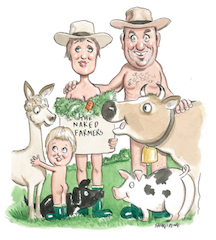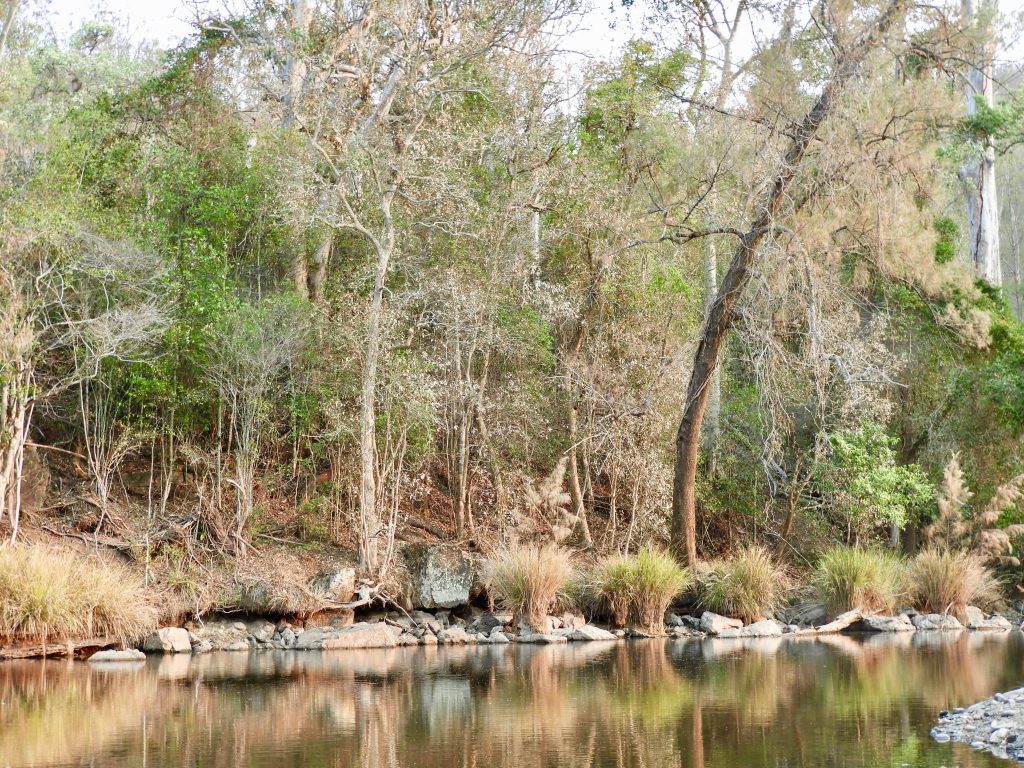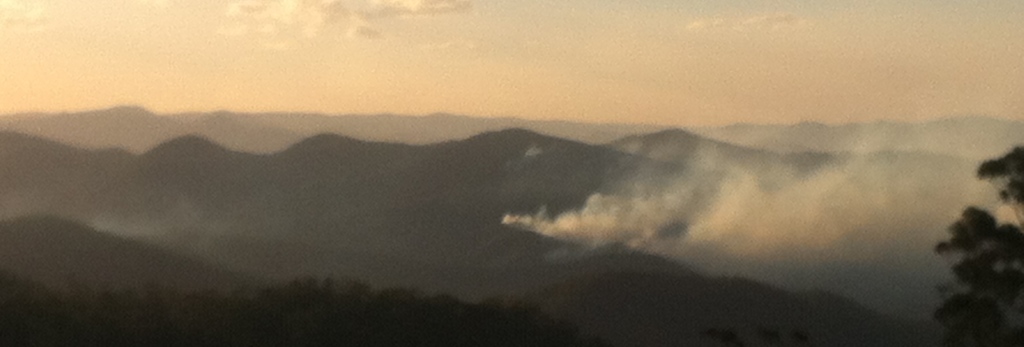I guess I couldn’t really understand what it was to be a farmer in this country without experiencing Drought. I console myself with that idea. The climate denialists will quote Dorothea McKellar’s beautiful ode to Australia as rationale for their beliefs, and it is true that Mother Nature operates in cycles, but we are in extremis now.
https://www.dorotheamackellar.com.au/archive/mycountry.htm
When we first came here, the farmers around us who had lived and farmed this land all their long lives told us that the Ellenborough River had never stopped flowing. It stopped in September 2019. We felt confident in our oasis with its creeks, springs and river. But we watched our stagnant pools dropping by inches a day in the vicious heat of spring and summer. We feared for ourselves, our stock, our platypus population – the river and rainfall are what sustains us all.
We scrambled frantically on the phones to find feed and then for funds to pay for it. We had to put our hand up for charity when we just couldn’t take any more. We watched beloved cows drop to their knees and despite our best efforts never get up again. We spent days digging a downer out of a bog, feeding and watering her and hand feeding her calf. We got intimate with maggots in an array of injuries. We learned just how useful hip lifters are. We hauled on heavy cows to turn and lift them. We tried and we tried and we tried . . . and we failed. We lost too many to count. We lost friends, four leggeds that we raised by hand and loved beyond measure: Isis, Damson, Millie, Milka, Henrietta, Big Red, JB and more. And then there were all the cows and steers we had to sell for a pittance because we feared they too would lie down and die.
And then there was Goldie. Our golden girl. Our beautiful bitch. Ben’s dog. There is something so incredibly beautiful about a boy and his dog. Listening to his peals of laughter as she scrambled all over him as she has done since a pup. He loved her so much. We all did. And her puppies were a miracle (unplanned though her pregnancy was, I am so grateful for it now). I stayed up all night and at one point woke Ben to come and see a baby being born. It was a sacred time. And despite her exhaustion and overwhelm (8 babies!!) Goldie was an amazing Mum. She hid under the house for a while that first day (& who can blame her?) and then she would disappear for a little while very day for a rest. Slowly traversing further afield as the weeks passed – down to the river for a swim and explore. Never too far, always back in an hour for the next feed. Until the day she disappeared with Mudji and didn’t come home. As night fell we were frantic and started feeding the babies (luckily I had bought some powdered puppy milk as a supplement for Goldie at the pet shop’s advice). Mudji turned up at the neighbour’s the next day as usual but no Goldie. It was Ben’s birthday weekend and we were out looking high & low, calling for her. No sign. No trace. No sound. Nothing. No body to bury. No real closure. No time to grieve.
We raised her pups, Ben instantly claiming the little lemon beauty as Goldie’s replacement and I held the little black boy close to my heart and refused to let him go despite Ged’s disapproval. And then we had to let them go too. God, that was hard. Every goodbye felt like another part of Goldie leaving us. And they were all so beautiful, just like her. But the fact that they are so loved by the families they have gone to, and that her light lives on in this world, is a source of great joy.
I don’t like who we became last year. Brutal, brittle, broken people. We talked very seriously about walking off the farm. We just couldn’t take it any more. We were in shock, I see now that it was like a war zone mentality – we became immured to death somehow, closed off from it, sealed from its shockingness in order to protect our own hearts.
And then came the fires. Moving slowly, but inexorably our way from Mt Seaview and Yarras. That added another level of stress. I went away to a long planned yoga retreat, hoping for healing. Instead I got a text from Ged with a dramatic photo of the fire now in the neighbour’s place and barrelling down on us. So I learned to live in the moment – going deep into meditation and breathing and then coming out to get on the phone and issue rapid fire instructions what to pack, what to leave, where essentials were, how to protect our assets. I stayed and focussed while fear built in me and then drove home via Bunnings on the Monday, filling a trolley with hoses and sprinklers. Ben was evacuated and we had two days to prepare ourselves and our property for the onslaught.
George, our 85 year old neighbour came by. He was scared. He doesn’t scare easy. He was worried about crown fires and fireballs and the lack of water, how dry it was, how little hope we could escape annihilation. But we did. Although the fires continued around us for months. ‘Watch & Act’ sounds so benign. But it is a state of hypervigilance, of nerves in tatters, of fear that I never want to experience again. And the helicopters overhead hour after hour, day after day, the thick smoke we breathed for months, and the sweet stench of death from my rotting friends gave me a feeling of Vietnam or some other vile warzone.
We went away but Ged had to come back to fight fire, to fix broken water pipes, to take delivery of more unaffordable hay. We couldn’t relax. We were constantly on edge, cranky, snappy.
The first rain came on Christmas Day – the ultimate Christmas gift. In January a slow moving wall of clear rainwater saw the river flowing again. Now we have cleansing floods, trees tossed and bobbing on fast moving muddy flood water as the riverscape is purified once more.
And now the healing can begin. I have begun what I call ‘crying yoga’ the nights on my mat sobbing for my lost friends. And walking the landscape, remembering their faces, their soft pelts, their wet noses.
We are scarred by 2019. We will never forget. I don’t know what the future holds, but I do know this – the global human population has exploded over the past 150 years as has our consumption, manufacturing, coal burning and carbon creation as we evolve from horse and cart to steam power, electricity, petrol & diesel driven cars, planes and more. We cannot possibly believe that our deforestation and coal burning has not irrevocably altered the planet and its atmosphere. We have to stop. We have to change. We have to backpedal. We all have to do our bit.



